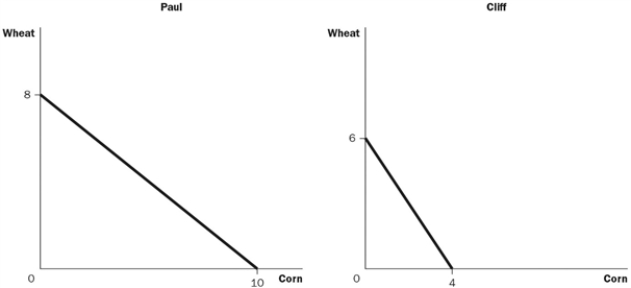Exam 3: Interdependence and the Gains From Trade
Exam 1: Ten Principles of Economics218 Questions
Exam 2: Thinking Like an Economist231 Questions
Exam 3: Interdependence and the Gains From Trade206 Questions
Exam 4: The Market Forces of Supply and Demand307 Questions
Exam 5: Measuring a Nations Income169 Questions
Exam 6: Measuring the Cost of Living181 Questions
Exam 7: Production and Growth190 Questions
Exam 8: Saving, Investment, and the Financial System214 Questions
Exam 9: Unemployment and Its Natural Rate197 Questions
Exam 10: The Monetary System204 Questions
Exam 11: Money Growth and Inflation195 Questions
Exam 12: Open-Economy Macroeconomics: Basic Concepts219 Questions
Exam 13: A Macroeconomic Theory of the Small Open Economy195 Questions
Exam 14: Aggregate Demand and Aggregate Supply257 Questions
Exam 15: The Influence of Monetary Policy on Aggregate Demand130 Questions
Exam 16: The Influence of Fiscal Policy on Aggregate Demand126 Questions
Exam 17: The Short-Run Tradeoff Between Inflation and Unemployment207 Questions
Exam 18: Five Debates Over Macroeconomic Policy126 Questions
Select questions type
If there is no trade, which of the following is most likely?
(Multiple Choice)
4.8/5  (26)
(26)
Spain and Germany can both produce fish and cars. Spain has a comparative advantage in cars, but Germany has an absolute advantage in cars. What would Germany import from Spain?
(Multiple Choice)
4.7/5  (32)
(32)
What is the best reason for people to provide you with goods and services?
(Multiple Choice)
4.8/5  (36)
(36)
 -Refer to the table. What is the opportunity cost of one beach ball for Winter?
-Refer to the table. What is the opportunity cost of one beach ball for Winter?
(Multiple Choice)
4.8/5  (33)
(33)
Figure 3-1  -Refer to Figure 3-1. What is the opportunity cost of 1 bushel of wheat for Cliff?
-Refer to Figure 3-1. What is the opportunity cost of 1 bushel of wheat for Cliff?
(Multiple Choice)
4.7/5  (35)
(35)
Which of the following would NOT occur if each person specializes in the good for which they have a comparative advantage?
(Multiple Choice)
4.8/5  (29)
(29)
Showing 201 - 206 of 206
Filters
- Essay(0)
- Multiple Choice(0)
- Short Answer(0)
- True False(0)
- Matching(0)